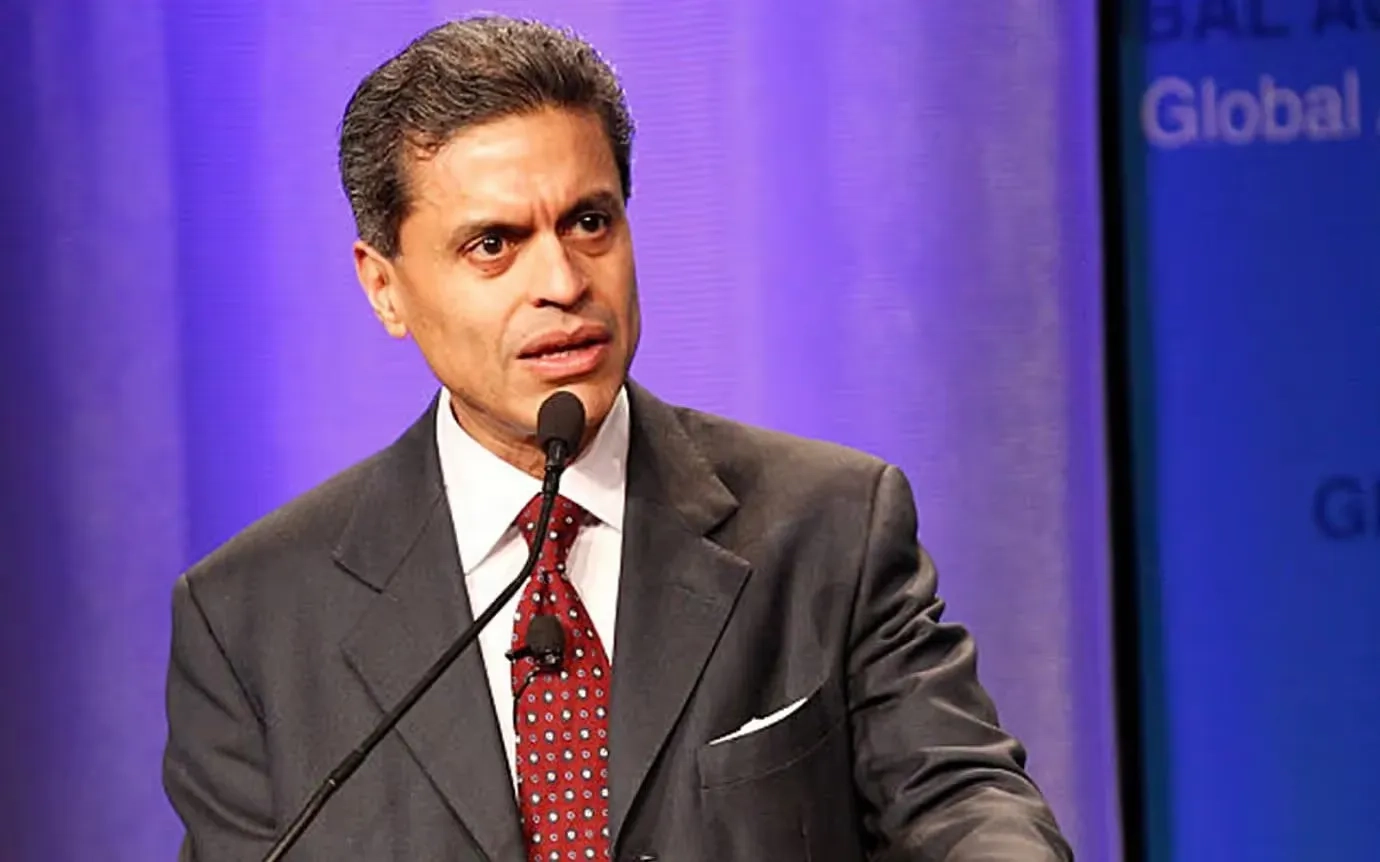Fareed Zakaria, a prominent CNN journalist and commentator, has become a notable voice in the ongoing discussion surrounding US immigration policy. Over the past several years, Zakaria has raised concerns about the impact of massive numbers of people crossing into the US illegally and how this issue contributes to the polarized political climate in the country. In a series of opinion pieces and broadcasts, Zakaria has not only criticized the Biden administration's approach to immigration but has also offered advice to the Democratic Party on how to navigate this complex issue.
In an opinion piece titled "Democrats need to admit that they’re wrong on immigration," Zakaria bluntly addresses the immigration crisis that the Democratic Party faces. He argues that this crisis could potentially harm the party's chances in upcoming national, state, and local elections. Zakaria emphasizes that the problem isn't solely due to Republicans capitalizing on the issue but also because Democrats have been reluctant to acknowledge the inadequacy of their policy ideas in addressing the immigration challenge.
One key issue that Zakaria highlights is the surging apprehensions at the southern border. While Texas border towns have long been dealing with the influx of arrivals, the situation has escalated to the point where migrants are now being transported to major cities such as New York, Chicago, and Washington, D.C. This has placed a considerable financial burden on local governments, with New York City Mayor Eric Adams even suggesting that the problem could "destroy" the city.
Zakaria contends that the Biden administration's efforts to address this crisis amount to mere "Band-Aids on a massive, open wound." He also acknowledges Homeland Security Secretary Alejandro Mayorkas' admission that the asylum system is broken. However, Zakaria argues that a fundamental overhaul of the system is required, a move that neither Mayorkas nor President Biden has proposed.
To contextualize the issue, Zakaria harkens back to the aftermath of World War II when the United States developed pathways for people facing extreme persecution based on their race, religion, or beliefs to find refuge in America. He underscores two critical realities that need to be addressed in transforming this idealistic impulse into a practical system:
First, there are millions of people globally who could plausibly claim persecution, and the United States cannot possibly accommodate them all. Second, the United States cannot prioritize those who break the law and enter the country illegally over those who follow the rules, apply from their home countries, and wait their turn. Zakaria asserts that this is precisely what is happening daily at the southern border.
Moreover, Zakaria emphasizes that asylum cases must be distinct from cases of individuals seeking to immigrate due to reasons like poverty, disease, or violence. The complexities of these cases necessitate a comprehensive process that includes various visas, work permits, and pathways to green cards and citizenship.
One of the most pressing concerns Zakaria raises is the collapse of due process resulting from individuals choosing to cross the border illegally and then claiming asylum status to legitimize their entry. This, he argues, is grossly unfair to those with legitimate claims to asylum or legal immigrant status.
To address this crisis, Zakaria offers a solution proposed by congressional expert Nolan Rappaport. He suggests that the president should use the power granted by existing law to suspend the admission of asylum seekers entirely while the system deals with the backlog of immigration cases.
Zakaria's views on immigration policy emphasize the need for Democrats to reassess their approach. He argues that Democrats have spent considerable efforts criticizing the Trump administration's immigration policies but need to address the root causes of the crisis. He warns that unless they take control of the issue, it could become fuel for the populist right, much like in other Western countries.
In conclusion, Fareed Zakaria's perspective on US immigration policy underscores the urgency for the Democratic Party to reevaluate its stance and consider more moderate approaches. His emphasis on the need for increased enforcement of immigration laws and the overhaul of the asylum system highlights the complexities of this multifaceted issue. As the immigration debate continues to evolve, Zakaria's insights offer valuable contributions to the ongoing discussion on how to effectively address the immigration challenges facing the United States.
Carve Your Niche in Immigration Law
Unlock the potential of your personal brand and set yourself apart in the world of immigration law. Harness the tools, strategies, and insights to become the go-to expert in the immigration law landscape.
Download Now
About the author

James PittmanAttorney & Co-FounderDocketwise
James Pittman is co-founder of Docketwise and was previously engaged in the private practice of US Immigration Law. He also regularly teaches Continuing Legal Education (CLE) classes on immigration law topics and legal ethics. He is admitted to practice in New York and New Jersey and is a graduate of Northeastern University School of Law.
